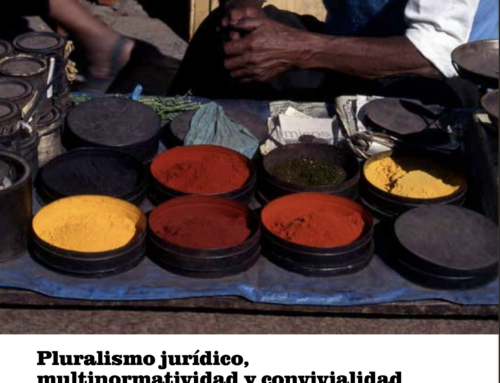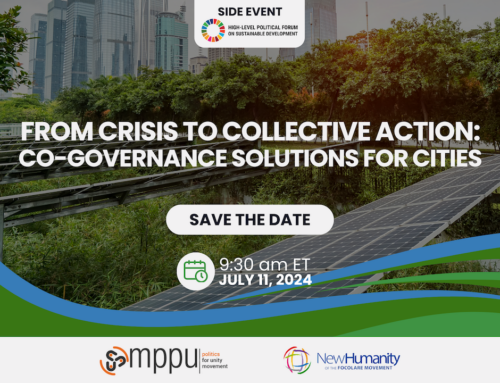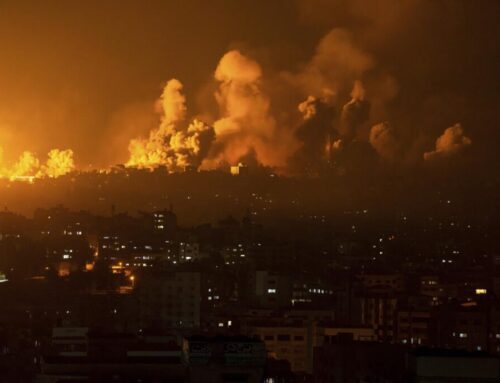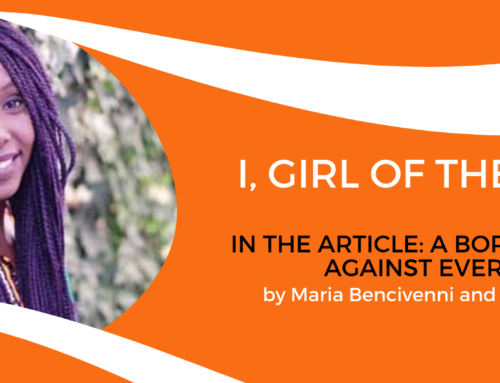 Mr. President, Distinguished audience,
Mr. President, Distinguished audience,
This conference is held under the theme “Mediterranean Dialogue,” bearing in its title a vision, an anticipation and a recognition that dialogue has become a pressing need and that it is the road to salvation from everything that our world is struggling against today, in particular terrorism, which does not stop at any limit or boundary.
This is why I chose to address in my lecture the topic of terrorism, its real causes and how to tackle it.
Terrorism, in the sense of systematic violence carried out by armed groups to change a reality or to impose new equations that are often worse than the existing ones, is not new. The world has known it in various eras and in various guises.
The terrorism that is hitting our world today may be the most dangerous because it is has the widest expansion and the most modern weapons. How did it see the light of day and how did it expand to be a threat across all the countries of the world?
In 1979, as the Soviets entered Afghanistan, the United States of America, in collaboration with some Arab and Islamic states prompted the emergence of a counter-resistance around Islam on the basis that Islamic beliefs are contradictory to communism and atheist thinking, and they represent a strong barricade in the face of their expansion.
Nevertheless, the Americans ignored then that Islam, despite being against the communist ideology, was not Western thought but rather had its own personality that is different from both. With time, the Afghani jihadis, supported with money and arms, turned into a terrorist organization that corrupted the concept of jihad, attracting young Muslims from the four corners of the globe, giving rise to Al-Qaeda … the very same Al-Qaeda that perpetrated the Sept. 11 attacks in 2001 on New York.
The terror machine had turned against its creator who, in turn, decided to destroy his machine.
The American earthquake began to shake; a new war in Afghanistan first spilled over into Iraq, leaving behind a lot of destruction, death and hatred in both countries. With the continuous military pressure on Al-Qaeda, it was dismantled, only to reemerge in different dogmatic
trends and multiple new terrorist organizations that began to grow and expand.
In 2005, Abu Musab al-Zarqawi appeared in Iraq, accusing the Shiites of apostasy (takfirism). The notion of the takfir for the Islamists means the obligation to fight and kill and the criminal scenes have followed in a row, taking a confessional and sectarian tint. The scheme that was being drawn for the region seemed obvious and I say obvious for those who wanted to see. A new monster was being created and new arenas were being set for destruction. Then came the theories about the “New Middle East,” “Creative Chaos,” and the “Arab Spring,” and with them the Arab countries began to burst into flames from Tunisia to Libya to Egypt to Syria, along with some African countries. Your Excellency, Distinguished audience, Many times, I have been outspoken about being guarded against being swept along in the Sunni-Shiite war and the disasters it could bring to our region. I have advised the European ambassadors and all the Western politicians who have called on me that what was being prepared for the East – if it was meant to succeed – would not only cause us damage, but would also have great repercussions on Europe and there would be no limits or boundaries because we have the Mediterranean in common. Nevertheless, the scheme was beyond any warning and here is our entire East suffering from the burden of the fallout, and here is terrorism moving from one country to another in Europe.
I also warned many times, since the 1990s, of the growing takfiri fundamentalism and the danger of its schemes against Lebanon, the region and Europe as well. Indeed, Lebanon stands at the front line between Europe and the Levant and any loss incurred here will not remain without repercussions there. I therefore addressed a letter to then-French President Francois Mitterrand in 1989 in which I noted that the confrontation between the West and the extremist Islamists would undoubtedly be one of the major issues at the end of that century and that Lebanon, which they were trying to strike, was a land where Islamic-Christian dialogue constituted an essential culture and a lifestyle that has always distinguished us from the rest of the world.
In an interview I gave to a Gulf newspaper in 1994, I warned that fundamentalism represented, first and foremost, a threat to Islam and that they would come to power in Islamic countries and would fail.
I raised my voice in warning once more, when I was in exile, through a letter I sent to the “leaders of the world” in 1995, when some terrorist incidents had begun to peek out from Bosnia and Algeria and even Paris. I wrote then: “These are signs of conflict threatening our future, hard to be avoided by nuclear deterrents and conventional wars. No one is spared by violence that is generated by the explosion of racial and fundamentalist feelings and these crimes that were nurtured in the laboratories of political realism will infect those who let them grow.”
Nevertheless, our warnings fell on deaf ears because nobody wanted to listen. Although those aggrieved by terrorism are numerous, its beneficiaries are also numerous and no terrorism can grow, expand and gain power without sponsor states.
Many factors are combined and pave the way for the emergence of terrorism: first of all a despotic regime with a false democracy or a declared dictatorship where the citizen finds no space for expression or possibility to change power by democratic means. These are coupled with poverty, need and ignorance. Then there is extremist thinking and fanaticism which stimulates instincts, reasons to kill, paralyzes logic and offers fictitious solutions that facilitate recruitment. Then one or more states that take advantage of all the above, provide funding and support, generate new terrorism with a new name, and use it to achieve their interests by hitting other states’ economies, security and stability, indifferent to the suffering this may cause for the people.
This is the typical equation for the emergence of terrorist organizations, but this very equation states that this machine of destruction may get out of control and start to strike at random.
This is exactly what happened with the present terrorism – it started its criminal activity in some Arab countries that were swept up by the so-called “Arab Spring,” but it soon broadened its scope and expanded to hit Europe profoundly, affecting Paris, London, Brussels, Madrid, Nice, Munich, as well as the United States and others. Today, the danger is mobile, the threat is serious between sleeper cells and lone wolves and no one knows how or where it can strike, nor to the extent it may go or how it will end. Mr. President, Distinguished audience, In order for the world not to remain the prey of fatal extremism, it is imperative to lay the foundations of a dual treatment – an instantaneous treatment that eradicates the present reality and a radical treatment that prohibits its recurrence in the future.
While the instantaneous treatment means repelling terrorism militarily, deterring it by force, drying out the financial sources that nurture it and preventing it from being fueled by new elements. The radical treatment is the most important, because it prevents its resurgence by eliminating its raisons d’etre, namely its ideology.
The terrorist thinking is a totalitarian ideology that contradicts the right to difference and allows killing of the “other,” or even calls for its execution. Therefore, only the development of the democratic values which respect the human right to difference, the freedom of belief, expression and opinion and their religious, racial and ethnic uniqueness and allow them to live is capable of assuming the intellectual confrontation with the ideology of terrorism.
There is no doubt that modernizing teaching and education on the values of democracy, along with development, fighting poverty, creating employment opportunities and emancipating women, accompany the process of progressive transition of the states from underdeveloped regimes that provide favorable environments for the growth of terrorism and extremism, towards a full-fledged democracy and the acceptance of the differences between humans.
In this respect, as long as we are in the “Mediterranean Dialogues” conference, I believe that the Mediterranean basin that lies between the European, Asian and African continents, reconciles the cultures of all divine religions and has a rich heritage of the cultures, civilizations, languages and peoples of the ancient and modern worlds; and this is what makes it eligible to become a hub for common dialogue among these cultures and religions.
Lebanon is, by nature, a plural society that gathers Christians and Muslims in all their respective confessions. They live together and they share a lot, namely habits, values, social and political life … They may sometimes embrace the wave of political divisions but their divisions do not go anymore beyond politics, and their national unity is the ceiling. This is what made His Holiness Pope John Paul II say that Lebanon is “more than a country, it is a message.” It is this message in particular that encouraged me to address the United Nations and propose to turn Lebanon into a permanent center for dialogue between the various civilizations, religions and races, and a school to train educators who uphold human values and coexistence. The same message has driven me to stand before you today and to call on you to adopt this proposal.
I have reasons to believe that the Mediterranean civilization is best suited to host this dialogue through the historical and cultural ties that unite it. It is more concerned than any other region with dialogue between civilizations and religions, in order to combat terrorism and violence which are invading the world. Will it take the lead of the initiative towards inter-civilizational and interreligious dialogue?
It is more than a mere desire, it is rather a plea with which I entrust this elite gathered around a noble goal sought by the countries at the two shores of the Mediterranean, and I am confident that this challenge will be met.
Thank you for your attention.
Source: www.pressreader.com/





Leave A Comment